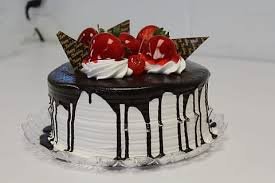
U.S. Southern Culture: Where are the Native American Authors?
Since Tahlequah, Oklahoma is only 30 miles from the Arkansas border, we relate mostly to U.S. Southern culture. Why do I mention my hometown? It's not only the place where I live, work, and raise my family. It's also home to two Cherokee tribal governments: Cherokee Nation and the United Keetoowah Band of Cherokees. I personally work for Cherokee Nation in the Indian Child Welfare Department. Additionally, the third Cherokee government is the Eastern Band of Cherokees in North Carolina. All this to say, Cherokees are the largest federally recognized tribe in the United States and our governments are historically situated in the South. So why don't we exist in the canon of Southern literature?
It looks like the American system has made us invisible once again. It amazes me how hard folks work to keep the "pristine myth" alive. While we are the smallest minority in the U.S., we are here. Don't believe the lies. The land is not vacant. There are Indigenous people here and we've been here since time immemorial. We drive the same highways you drive, and often climb the same ladders. So there's not a lack of Natives writing from the South. What's missing is the amount of attention we receive.
If I were to ask you, who is the quintessential Native American author from the South? Does anyone come to mind? Now don't go running to Google! That's cheating. I can name several contemporary Native American authors with Southern roots, but I have a Master's Degree in English with a concentration in Native American Literature from the University of Oklahoma. If I didn't readily know any names that'd be a problem. But most American readers don't know. Some might mention Joy Harjo because she was the U.S. Poet Laureate in recent years.
As far as fiction writers, there's Leanne Howe, Annette Saunooke Clapsaddle, and Kelli Jo Ford. There are also contemporary poets, like Sy Hoahwah and Santee Fraizer. Those are off the top of my head. More names will come to me later. Historically, there's no one with more publications than Robert J. Conley, who was not only an enrolled member of the Keetoowah Band of Cherokees but also wrote novel after novel about Cherokees in traditionally Southern environments. He not only wrote about Cherokee historical figures but also depicted the removal of Cherokees from North Carolina in his novel Mountain Windsong. While much of his writing was historical fiction, he won three Spur Awards in the Western genre. Conley was someone who should've received more recognition for his contributions to Southern literature. Maybe we could've honored him in the same way we honored Lee, Hurston, and Faulkner.
I'd like to commend the publishing industry for recognizing when there is a societal discrepancy, like lack of representation. In recent years there has been tremendous gains in this area. There are more BIPOC authors right now than there has ever been in American history. I'd also like to ask the publishing industry to consider the biggest issue facing Native Americans today: invisibility. We are the smallest minority in the U.S. with some of the highest disparity rates. Our communities are doing phenomenal work to end intergenerational trauma. Native people are resilient, hardworking, and proud. Give Southern Natives the opportunity to showcase our tenacity and strength. Recognize our contributions to the publishing industry. The canon of Southern literature needs Native voices--voices that not only advocate for tribally specific customs but can also represent historically targeted communities with a critical eye and genuine compassion.
Overcoming the Criticisms of FX/Hulu Series "Reservation Dogs"
First off, none of us live in the village of the happy people. Secondly, if there was such a story, no one would read nor watch it. Because it'd be a bunch of BS. One of the many pleasures of engaging with art, whether it be film, literature, or the various branches of studio arts, is the freedom we have to think critically about what we consume. When I heard about the series, Reservation Dogs, coming from FX and Hulu, I was excited to watch. I'm always pleased to see Native faces and Native communities in popular culture--especially when it showcases our resilience. We're a beautiful people with unique experiences to share.

I didn't get an opportunity to watch the first two episodes until several days after its initial release. I got caught up in the hype and heard a ton of positive comments. Natives were excited to watch. Finally, a popular representation of ourselves in media.
Then I started to hear the initial criticisms, like Natives being depicted as criminals and a disparaging outlook on community. Furthermore, is this misery porn for audiences who want to see Natives attack other Natives? Folks were also wondering about the sense of community pride and the representation of strong family networks. Moreover, where was the saving grace of cultural participation? There were also criticisms about how the characters don't have Oklahoman accents, which is very distinct.
I don't want to devalue these observations. I think Natives are making some valid points.
There are a few things to keep in mind. Firstly, this series is just starting. It can take several episodes to get into the depth of the storyline. Truly, there is plenty of time for the familial elements to develop. Similarly, hyperlocal Muscogee culture will likely rise to the top as the series continues. It's too early to say what is missing overall. It's like reading the first chapter of a novel and then criticizing the entire book without reading to the end. We, as an audience, don't know yet what will play out as the season moves forward.
When it comes to the criticism about depicting Natives as criminals, I think the show does attempt to show the characters' humanity. Their intent isn't malicious. These are not vicious criminals. Moreover, the creators are touching on an aspect that does exist in our communities. Especially when it comes to violence between youth. We can all attest to gang related activities in our Native communities. Being a published writer myself, I also understand the method of structuring a story with characters at either a low point or a high point. If you start the story with a high point, then you can only spiral downwards. I think starting Reservation Dogs at a low point is a good sign. Now if the characters stay at that low point, then that's a different situation altogether. But like I mention above, the series is still too early in episodes to make that criticism.
I want to take care of this whole "misery porn" BS now and forever. We, as artists, are ascribed to capture life as we've experienced it and transform it--not only as entertainment but as an opportunity for audiences to self-reflect. Like I started this post, none of us live in the village of the happy people. We, as artists, don't have control over an audience's reasons to engage. We have control over how we engage our communities for critical thought and discussion. If people want to make a "misery porn" criticism, then that should be directed at consumers--not creators--to think about how and why they engage with Native art. All in all, it's a great opportunity to have a thoughtful discourse and grow.
Lastly, I'd like to take on the issue with the Oklahoman accent. True, the characters don't have the distinct accent we from Oklahoma expected. I live, work, and love in Oklahoma so I get it. But what we need to keep in mind is that this series isn't "only" for Oklahoma Natives. I'd describe the Native accents used in this series as a "non-regional NATIVE" accent. It's more of a universal Native accent. We do hear it in Oklahoma, like other parts of the United States, but ours is spiced up with a lovable Okie twang. I think the creators did the right thing. The non-regional Native accent makes the show more appealing across the board. It also shows the commonality we have with a shared colonial history, while still accessing a beautiful and unique hyperlocal Muscogee reality. I say well-played to Sterling Harjo and Taika Waititi.

I'd like to leave folks with this: we're early in the show and it's important to support Native arts. We complain about not having representation in popular media, and then when it gets here we bash it. I say let's give Reservation Dogs its due justice and support the show as it continues the season. For myself, I'm excited to see what Bear, Elora, Jackie, and Cheese encounter next--especially as the quirky side cast weaves in and out of their lives.
Indian Child Welfare Novel: Lessons in Cooking Coded Cake
If you're getting silenced, or an attempted silence, as an artist/writer this is a sign you're doing something right. The ACLU has extensive documentation about the rights of artists to speak our minds and advocate for communities. Intimidation tactics from white supremacists didn't stop me from writing my first novel, UNSETTLED BETWEEN, and they won't stop me from writing my "ICW" novel. Power hungry racists will always fear artists. We have a power they'll never have: the ability to move audiences to connect with a deeper sense of their own humanity. You might be wondering why I'm writing this post. It's not exactly one of my typical updates on my writing projects. Usually I use this space to brainstorm concepts in a story I'm writing, but today I'd like to talk about how fiction writers can capture real life in their pages. Moreover, how artists overcome coercive tactics meant to silence our voices.
You might be wondering why I'm writing this post. It's not exactly one of my typical updates on my writing projects. Usually I use this space to brainstorm concepts in a story I'm writing, but today I'd like to talk about how fiction writers can capture real life in their pages. Moreover, how artists overcome coercive tactics meant to silence our voices. As you already know, when I write I do so from personal experience. I take what I see around me, whether in my personal life or the lives of the people in my proximity, and I transform it into a fictional space. So there are a few ways in which I pull this off. I've had people ask me, "How can you do that and not offend people?" Well, the short answer: It can still rub certain people the wrong way. But the truth and honesty in the work will always shine through and people can't deny the craftsmanship in turning real life into fiction. At the end of the day, only the villains will become detractors. Most will be flattered. I always say, "If you don't want to be a villain in fiction, the don't be one in real life."The primary things to consider are more obvious: change names, alter places, and code oppression. The issue for white supremacists is their legacy. If you, and others around you, talk and gossip about their behavior, it's already known in the community how they are oppressive. Just enough has to come to the surface before those in higher positions of power catch wind. The system will ignore oppressive acts only as long as it has to. Once something becomes news worthy, then those in the highest reaches of power will put a stop to it. The oppressors will do everything they can to keep things from getting to a boiling point. Hence the suppressive tactics and attempts at silencing artists.
As you already know, when I write I do so from personal experience. I take what I see around me, whether in my personal life or the lives of the people in my proximity, and I transform it into a fictional space. So there are a few ways in which I pull this off. I've had people ask me, "How can you do that and not offend people?" Well, the short answer: It can still rub certain people the wrong way. But the truth and honesty in the work will always shine through and people can't deny the craftsmanship in turning real life into fiction. At the end of the day, only the villains will become detractors. Most will be flattered. I always say, "If you don't want to be a villain in fiction, the don't be one in real life."The primary things to consider are more obvious: change names, alter places, and code oppression. The issue for white supremacists is their legacy. If you, and others around you, talk and gossip about their behavior, it's already known in the community how they are oppressive. Just enough has to come to the surface before those in higher positions of power catch wind. The system will ignore oppressive acts only as long as it has to. Once something becomes news worthy, then those in the highest reaches of power will put a stop to it. The oppressors will do everything they can to keep things from getting to a boiling point. Hence the suppressive tactics and attempts at silencing artists. The last thing they want is a permanent record of their hate. Remember: we're all judged by our endings. The ones in real life, and the ones we write. If the last thing people know about you is that you're a pedophile, then everyone in the community will remember you as a pedophile. It doesn't matter how much you've done before. Preying on a child, even if that child was a vulnerable disadvantaged teen, is inexcusable. And they might think people don't know they were fired from a job working with youth. But the right people always know. The next time you see them ask, "Why were you fired from that youth organization?" Likewise, if community members read coded fiction stories divulging poorly treated vulnerable populations, those in the community will know the code. They'll know who so-and-so is, and if they don't, all they have to do is ask relatives who will ask other relatives. In small town politics, word moves fast. And the power of gossip is something no one should underestimate. Believe me when I say this: Writers are seductive monsters. Our love lulls audiences into a mind altering hypnosis. And we're very aware of what we're doing. I've said this before,"We’re persuasive colonizers seeking to intrude on your sensibilities."When taking a real event, involving real life people, I not only change their names and description, but I also layer each story with other layers of truth. So what I'm doing is stacking multiple real life situations atop each other, and this turns a true story into fiction. To be completely honest, a single interesting event in real life is not good enough to entice a reader. You have to add more and more. Like sugar is the thing that makes a cake taste great, but it's the multitude of ingredients that give you the experience of eating a cake. Otherwise, we'd all be pouring bags of sugar down our throats, lol. How the ingredients are cooked together and presented make for a complete "cake experience." Turning real life into fiction works the same way.
The last thing they want is a permanent record of their hate. Remember: we're all judged by our endings. The ones in real life, and the ones we write. If the last thing people know about you is that you're a pedophile, then everyone in the community will remember you as a pedophile. It doesn't matter how much you've done before. Preying on a child, even if that child was a vulnerable disadvantaged teen, is inexcusable. And they might think people don't know they were fired from a job working with youth. But the right people always know. The next time you see them ask, "Why were you fired from that youth organization?" Likewise, if community members read coded fiction stories divulging poorly treated vulnerable populations, those in the community will know the code. They'll know who so-and-so is, and if they don't, all they have to do is ask relatives who will ask other relatives. In small town politics, word moves fast. And the power of gossip is something no one should underestimate. Believe me when I say this: Writers are seductive monsters. Our love lulls audiences into a mind altering hypnosis. And we're very aware of what we're doing. I've said this before,"We’re persuasive colonizers seeking to intrude on your sensibilities."When taking a real event, involving real life people, I not only change their names and description, but I also layer each story with other layers of truth. So what I'm doing is stacking multiple real life situations atop each other, and this turns a true story into fiction. To be completely honest, a single interesting event in real life is not good enough to entice a reader. You have to add more and more. Like sugar is the thing that makes a cake taste great, but it's the multitude of ingredients that give you the experience of eating a cake. Otherwise, we'd all be pouring bags of sugar down our throats, lol. How the ingredients are cooked together and presented make for a complete "cake experience." Turning real life into fiction works the same way. Saying so-and-so is a racist and oppresses every dark skinned person they encounter is intriguing in the most awful way possible, but when you add that so-and-so has an opiate addiction and throws women under the bus--now we're getting deep and dirty. Take that and add how their child is a meth addict and they've used their power to clear criminal charges; then all of a sudden it's getting really real. But you get the picture. It's taking multiple real life events from different people around you and smashing them together.Writers sacrifice for the solitude needed to capture an entertaining version of real life. Ultimately, no matter how "literary," that's what we're doing, that's our job: to entertain. Audiences love stories flavored with the sweetest truth, savoring each bite like the latest gossip in town. They will read and reread pages in your novel to chew on the layers, to find the truth about the people they know. Now can you imagine anything better than cake?
Saying so-and-so is a racist and oppresses every dark skinned person they encounter is intriguing in the most awful way possible, but when you add that so-and-so has an opiate addiction and throws women under the bus--now we're getting deep and dirty. Take that and add how their child is a meth addict and they've used their power to clear criminal charges; then all of a sudden it's getting really real. But you get the picture. It's taking multiple real life events from different people around you and smashing them together.Writers sacrifice for the solitude needed to capture an entertaining version of real life. Ultimately, no matter how "literary," that's what we're doing, that's our job: to entertain. Audiences love stories flavored with the sweetest truth, savoring each bite like the latest gossip in town. They will read and reread pages in your novel to chew on the layers, to find the truth about the people they know. Now can you imagine anything better than cake?
(Images were borrowed from pixabay, pxfuel, piqsels and flickr)

